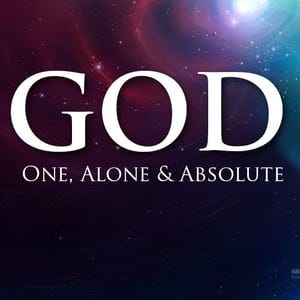I hit upon 'uniquely unique' a while back as an apt predicate of God. But it is only the formulation that is original; the thought is ancient.
To be unique is to be one of a kind. It will be allowed that nothing counts as God unless it is unique. So at a bare minimum, God must be the one and only instance of the divine kind. (This kind could be thought of as the conjunction of the divine attributes.) Beyond that, it will be allowed that whatever counts as God must be essentially unique: nothing that just happens to be uniquely of the divine kind could count as God. What's more, it will be allowed that nothing counts as God that is not a necessary being. Putting these three allowances together, I say that God is not just essentially, but necessarily unique. (In the Leibnizian patois of 'possible worlds,' God is unique in every metaphysically possible world in which he exists, and he exists in every such possible world. By contrast, Socrates is essentially human, but not necessarily human inasmuch as he does not exist in every metaphysically possible world. Anything necessarily F is essentially F, but not conversely.)
But some of us want to go further still. We want to say that God is uniquely unique. His uniqueness extends to his mode of being unique. He is unique in a way that no other thing is unique. Let me explain.
Suppose there is more than one necessarily unique being. The necessarily unique God would then be just one of many necessarily unique beings. In that case he would not be uniquely unique. He would share the property of being necessarily unique with other items. (Gottlob Frege’s thoughts (Gedanken) and Bernhard Bolzano’s propositions (Sätze an sich) and such other platonica as numbers and sets of numbers are epistemically possible candidates.)
If God is just one of many necessarily unique beings, then something greater could be conceived, namely, a being that transcends the distinction between kind and instance in terms of which uniqueness is ordinarily defined. If I asked someone such as Alvin Plantinga wherein resides the divine uniqueness, he would presumably say that it resides in the fact that the there is one and only one possible instance of the divine nature: this nature exists in every possible world and God instantiates it in every possible world. But then God is just another necessarily unique necessary being.
A truly transcendent God, however, must transcend the ontological framework applicable to everything other than God. So he must transcend the distinction between kind and instance. In a truly transcendent God there cannot be real distinctions of any kind and thus no real distinction between kind and instance, between nature and individual having the nature.
Now if God transcends the distinction between instance and kind/nature, and is uniquely unique, unique in a way that no other being is or could be unique, then that is equivalent to maintaining that God is ontologically simple. (See my Stanford Encyclopedia of Philosophy entry on the divine simplicity.)
But why think that God is ontologically simple and uniquely unique? Here is where the paths diverge.
Some of us feel impelled to say that a God worth his salt cannot be anything other than the absolute reality, the Absolute. The Absolute is One without a second, without even the possibility of a second. So God cannot be relative to anything or dependent on anything or immanent in anything as he would be if he were just one more being among beings. For then he would be immanent to what I have called the Discursive Framework. It is rather the case that God transcends this framework. If God is the Absolute, then he must be simple; otherwise he would depend on properties distinct from himself to be what he is.
Again, if God is the Absolute, then he cannot be one of many; he must be the ONE that makes possible both the one and the many. As such he transcends the Discursive Framework in which the one opposes the many. The ONE, however, is the ONE of both the one and many. It cannot be brought into opposition to anything.
"But such a God as you are describing is ineffable! I want a God that that can be addressed in petitionary prayer, a God that is a Thou to my I."
It sound like you want is to stop short at a highest finite object, when the religious-metaphysical quest is animated by dissatisfaction with every finite thing. The truly religious quester is a nihilist with respect to every finite object. A God worthy of our highest quest must be absolute, simple, transcendent, and ineffable.
But what does this uniquely unique God have to do with the God of Abraham, Isaac and Jacob? I engage this question in
Pascal, Buber, and the God of the Philosophers
"God of Abraham, God of Isaac, God of Jacob -- not of the philosophers and scholars." Thus exclaimed Blaise Pascal in the famous memorial in which he recorded the overwhelming religious/mystical experience of the night of 23 November 1654. Martin Buber comments (
.




